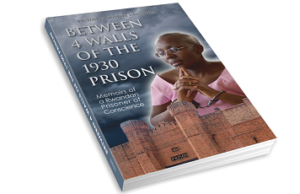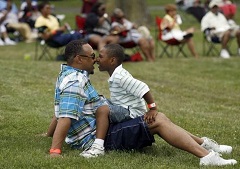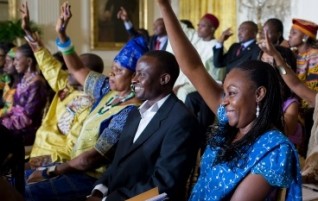24th November, 2017, the African Court on Human and Peoples’ Rights (AfCHPR) held that Rwanda violated Victoire Ingabire Umuhoza’s right to freedom of opinion and expression, as well as her right to an adequate defense.
The court ruled that Rwanda had violated Ingabire’s right to various aspects of her defense and to freely express her opinions within the law. The judges found that Ingabire had not minimized the genocide against Tutsis and had not spread false rumors about the government, charges that were central to Ingabire’s conviction by Rwandan courts. See AfCHPR, Ingabire Victoire Umuhoza v. The Republic of Rwanda, App. No. 003/2014, Judgment of 24 November 2017, paras. 173(viii)-(ix).
The AfCHPR found that the State violated Ingabire’s right to freedom of expression under Article 9(2) (right to freedom of expression) of the African Charter and Article 19 (right to freedom of expression) of the International Covenant on Civil and Political Rights (ICCPR) because the criminal conviction and sentence imposed on Ingabire for a speech that, the African Court found, did not minimize the genocide was a disproportional and unnecessary restriction on her freedom of speech. See id. at para. 173(ix).
Freedom of Expression
In light of Ingabire’s statement, the Court found that the restriction placed on her speech through her conviction was not necessary in a democratic society. See id. at para. 162. While the AfCHPR found that States with a history of genocide should restrict opinions that deny or downplay the magnitude or effects of the genocide because the statements “fall outside the domain of the legitimate exercise of the right to freedom of expression,” Ingabire’s statement, the Court held, did not deny or minimize the genocide against Tutsis because, in the statement accepted by the Court, she did not make reference to a genocide against Hutus. See id. at paras. 158-59.
Fair Trial
The AfCHPR also found a violation of Ingabire’s right to defense under Article 7(1) of the African Charter. See id. at para. 173(viii). Having found that the right to defense includes access to witnesses, the ability of counsel to consult with the client, to question witnesses, and to have access to the evidence, among other rights, the Court determined that threats and intimidation of one of the witnesses by prison officials, the use of evidence against Ingabire that was produced through that intimidation and never shown to the defense, and difficultly defense counsel had in questioning one witness were all in violation of the right to defense. See id. at paras. 86-87, 98.
The African Court on Human and Peoples’ Rights urged Rwanda to take appropriate measures in light of its ruling, saying her trial and conviction were unfair.
The African Court AfCHPR is a continental court that was established pursuant to Article 1 of the Protocol to the African Charter on Human and Peoples’ Rights on the Establishment of the African Court adopted in Ouagadougou, Burkina Faso, in June 1998. The Protocol came into force on January 25, 2004. The court complements and reinforces the African Commission on Human and Peoples’ Rights.







